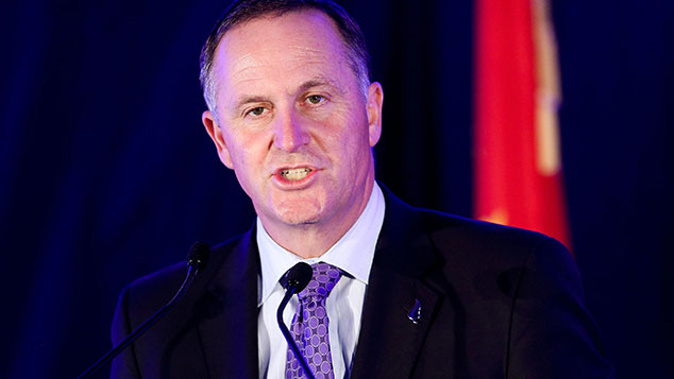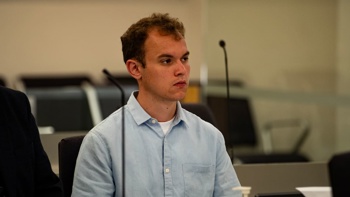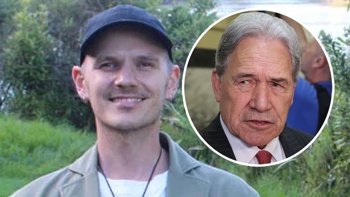
Prime Minister John Key has dismissed Labour’s position to ban all foreign trusts as a “knee-jerk” reaction to the Panama Papers.
Mr Key - who was this weekend singled out for criticism by the whistleblower behind the leaked documents - told reporters today that what Labour wanted was “risky”, and could result in “unintended consequences”.
“It would be, I think, a dangerous decision to make as a knee-jerk reaction to ban foreign trusts overnight. Because we have, actually, very good tax rules, they are integrated tax rules and they are respected around the world.
“One of the risks is if we as a knee-jerk reaction ban foreign trusts, then what about other structures like companies that might operate partnerships or other structures.”
Following the release of the papers last month, the Government launched a review of the disclosure rules for New Zealand’s foreign trusts.
Opposition parties have criticised the review’s narrow focus, and this morning Labour leader Andrew Little said he wanted to see foreign trusts banned altogether.
Talking on Q+A, Mr Little said he saw no value in the trusts.
“I cannot see what the purpose is, apart from allowing citizens in other countries to avoid their tax responsibilities in their home countries. And I am at the point now where I am saying, actually, unless I can be convinced otherwise, we should just get rid of them.
“I don’t see any value for New Zealand. The only argument that has been put up so far is they generate $24 million in fees for lawyers and accountants. Well, actually that is not a reason...I would be getting rid of them.”
Further information relating to the papers from the Panamanian law firm Mossack Fonseca is expected to be released on Tuesday morning New Zealand-time.
Mr Key said Inland Revenue had assembled a team of investigators who would sift through any released information and “follow any leads”.
“In the end, if there is a New Zealand individual that is identified that comes out of the Panama Papers release that hasn’t paid their fair share of tax, they should expect a knock on the door from IRD.
“It’s not against the law to have a foreign trust as a New Zealander, in fact there are members of Parliament who have a foreign trust. What is required is you declare that trust and pay all assessable income.”
The whistleblower behind the leaked papers criticised John Key in a first public statement released yesterday, saying the Prime Minister "has been curiously quiet about his country's role in enabling the financial fraud Mecca that is the Cook Islands".
Reacting to that, Mr Key said the way Cook Island trusts were taxed changed to solve issues of tax avoidance in 1988.
"Subsequently there have been no issues because that was why we changed the way we tax a foreign trust in New Zealand. That well and truly pre-dates me, it has nothing to do with me."
Mr Key maintained he was not concerned about New Zealand gaining a reputation as a tax haven as a result of the leak, saying the country "barely ranked as a foot note" in the papers.
The Cook Islands is a former New Zealand colony but is now self-governing in "free association" with New Zealand. Investors in the Cooks pay no income tax or capital gains tax. It has been branded a tax haven.
That was the only reference to Mr Key or New Zealand in an 1800-word manifesto by the leaker, who calls himself "John Doe" and is the source of millions of leaked documents from Mossack Fonseca, which outline widespread money laundering and tax evasion, sent the manifesto to German newspaper Sueddeutsche Zeitung.
An article published in the Australian Financial Review on Friday shed new light on the number of foreign investors who had moved their cash and assets into tax-free New Zealand-based trusts, and the way these investors were able to minimise their tax.
It said demand for New Zealand's foreign trusts massively increased last year and the law firm at the heart of the Panama Papers, Mossack Fonseca, had urged its New Zealand office to "chase the money".
Among the foreign investors was Mexican businessman Hinojosa Cantu, who is being investigated in his home country in relation to housing deals for government figures.
The Australian Financial Review article also claimed that Auckland-based lawyer Ken Whitney, whose clients include Prime Minister John Key, had written a reference for Auckland law firm Cone Marshall to get accreditation with Mossack Fonseca in 2009.
Companies Office records show that Mr Whitney was a director of the New Zealand office of the Swiss company Rothschild Trust until August last year. Cone Marshall are the Rothschild Trust's law firm in New Zealand and several of its lawyers are also directors at the Rothschild Trust.
Offshore companies and trusts are routinely used for entirely legal purposes, and Mossack Fonseca maintains that it has always complied with international protocols.
A reference to a person or entity in connection with the Panama Papers is not therefore in any way indicative of any wrongdoing or impropriety.
Take your Radio, Podcasts and Music with you









